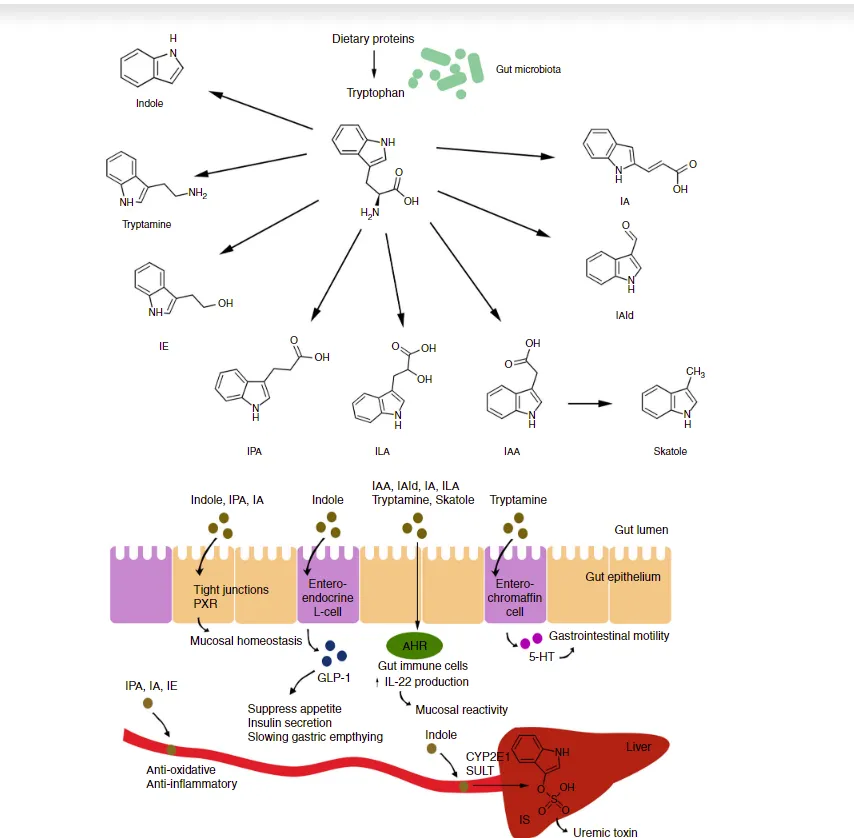Gas, Bloating, Irregular Bowel Movements...Oh My!. Irritable Bowel Syndrome.
- Adam Rinde, ND
- Jun 14, 2018
- 2 min read

Irritable Bowel Syndrome (IBS) effects 12% of patients seeing primary care physicians in the United States. It makes up 30% of the patients who seek care from a Gastroenterologist.
Often patients are embarrassed to mention their digestive problems to both providers and loved ones.
Instead opting to live with considerable distress, discomfort, inconvenience, and embarrassment
Contributed by altered digestive function.
IBS is characterized by the presence of abdominal discomfort or pain with disturbed bowel movements.
Bloating is often present but this is not considered an essential symptom for diagnosis. ]
There are various criteria that are used in diagnosing IBS and depending on who you see as a provider they may use the Manning criteria, Kruis Criteria, or Rome 1VI criteria.
Since many features of IBS overlap with more serious conditions like Crohn’s disease, Ulcerative Colitis, and Celiac disease; it's important to avoid Self-diagnosis. People at risk for acquiring IBS are those who have a recent history of bacterial or viral gastroenteritis; termed post-infectious IBS. Other risk factors are premenopausal and postmenopausal
Estrogen use, Recent antibiotic use, and food intolerances.
The underlying cause of IBS is an ongoing area of scientific investigation. The cause has been attributed to:
Abnormal colon and small bowel motility
Abnormal Histamine senstivitiy
Visceral Hypersenstivity
Abnormal gut inflammation
Food intolerances (wheat, dairy, citrus fruits, potatoes, onions, and chocolate being most commonly implicated)
Abnormal Colonic Flora and Bacterial Overgrowth.
Depression, anxiety, and abuse history
Once diagnosed Treatment can take several forms:
Diet and lifestyle changes. Several strategies have been investigated including High fiber diet, Low-Fodmap Diet, SCD-diet, GAPS-diet, Lactose avoidance, and wheat avoidance.
Medication: like laxatives, anti-diarrheal agents, antispasmodics, anticholinergics, antidepressants, serotonin receptor drugs, antibiotics
Natural supplements like: probiotics, western and chines herbal medicine, enteric-coated peppermint oil, and digestive enzymes
Psychologic therapies like; hypnotherapy and psychotherapy have been shown to be helpful
As you can see this is a very complex condition to treat.
Naturopathic Practitioners often employ the 4-R approach in dealing with IBS this may be:
R1: Remove triggers such as food triggers, bacterial triggers, stress, and emotional triggers
R2: Replenish the guts innate digestive process including proper stomach pH and digestive enzymes
R3: Re-inoculate the gut with healthy and complementary gut bacteria through specific prebiotics and probiotics.
R4: Repair the gut lining that may have been altered due to inflammation associated with Irritable Bowel Syndrome
This approach can be helpful for those who have struggled to find solutions for this troubling condition.
It often is best to work with both a Gastroenterologist and a Licensed Naturopathic Physician in assuring the most comprehensive care in approaching IBS. See my presentation on SIBO here.



